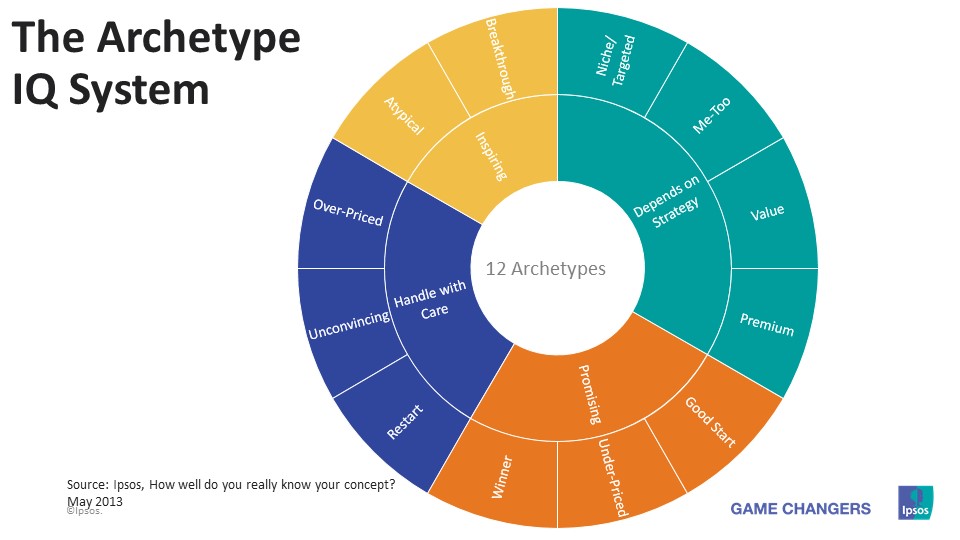How Well Do You Really Know Your Concept?
Why is this? Have lower research costs led to companies testing larger numbers of concepts simply because they can afford to? Are weaker ideas that would have been subjectively rejected before now being tested? Or, are concept testing tools themselves falling short in their task?
Traditional tools provide information about how good your concept is vs. a benchmark or other concepts in a database. They tell you if your concept is good or bad or somewhere in between – but do not offer specific next steps beyond “go” or “no go.”
At Ipsos, we evaluate concepts using our RED measures – Relevance, Expensiveness and Differentiation. Our R&D over the decades has demonstrated that these measures drive innovation success in market; moreover, they offer specific guidance on how to improve or re-work concepts that may not meet benchmarks but demonstrate the potential to succeed.
Still, to really understand your concept – and how it fits with your overall innovation strategy – you need to know exactly what type of innovation it is, and based on that type of innovation, what steps you need to take to make it successful. After all, your marketing strategy for a breakthrough product will be much different than for a me-too product, as would your strategy for a premium product versus a value product.
We have identified 12 Archetypes into which consumer packaged goods innovations can be classified.

Leverage Archetypes to see the whole picture
Identifying your innovation as one of the 12 Archetypes makes your concept testing much more powerful. Armed with this information, you can answer the following “big picture” questions:
- Do you have the right mix of innovations in your pipeline?
- How does your innovation fit with your brand strategy?
- Now that you know your Archetype, how should you proceed?
Knowledge is power
The Archetype IQ System paints a more complete picture of your innovation by considering consumer response on a combination of measures rather than only focusing on one measure at a time. By defining an innovation as a distinct Archetype, marketers are empowered with information that enables them to see beyond the concept test scores and make decisions based on:
- The role the innovation will play vis-à-vis other innovations in the pipeline
- How well the innovation will align with brand strategy
- How the consumer will perceive the innovation, which will affect the marketing strategy.


